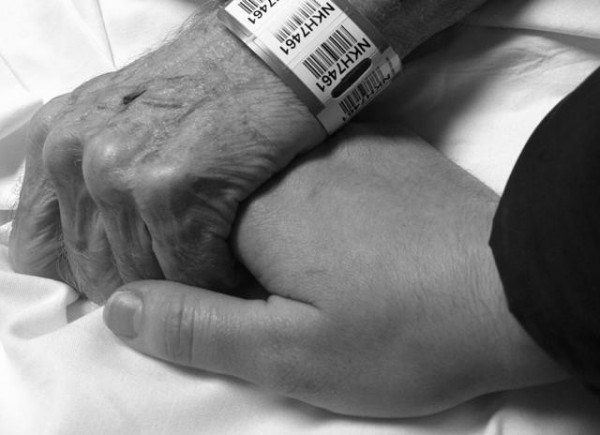When Don and Betty decided to spend their golden years in Asheville, their eldest daughter Linda Hemstreet says her organized parents only overlooked one part of their retirement plan: their longevity.
At 98, her father has vascular dementia and her 95-year-old mother suffers from osteoarthritis. Though the former nurse understands what it means to take care of someone, Hemstreet says that it was another experience entirely to become a caregiver to her parents.
“It’s a whole different role when it’s your family members,” she says. “You’re basically on call 24/7 for whatever issues might come up with them. The longer they live, the more those kinds of things come up and that’s a big challenge just having to be the one available.”
For her, that meant doing what she calls “a lot of daily monitoring.” Hemstreet’s caregiving responsibilities ranged from chauffeuring her parents to doctors’ appointments to making sure they were taking their medication and eating enough food. Then one day she realized that her calendar had become their calendar, too.
“I’m in my 60s, and that’s an age when many caregivers have to take on this role. Prior to this, you think, ‘This is when I can move to working part time, or toward semiretirement.’ But what happens when you’re a caregiver is that time is filled up with the needs of your parents,” she says.
Hemstreet’s story has become a familiar narrative locally and nationally.
Findings from a 2009 telephone survey by the Centers for Disease Control show that almost 25 percent of Buncombe County residents have provided regular care to a friend or family member with a health problem, long-term illness or disability in the last month, compared to about 23 percent of respondents statewide.
A study by the AARP that same year estimates that caregivers make up 29 percent of the U.S. population.
However, statistics don’t provide the sense of solidarity that a support group can, says Nancy Smith-Hunnicutt.
On the third Monday of each month, she can be found interacting with local caregivers at Caring for Aging Parents Education and Support Program, or CAPES. The support group, co-sponsored by Mission Hospital and Council on Aging of Buncombe County, focuses on the needs of people like Hemstreet who look after their aging parents. Most of the roughly 15 caregivers who attend the support group are caring for a parent with some form of dementia, according to Smith-Hunnicutt.
“In a situation where a person is living with dementia, there are such changes in that individual’s personality,” says Smith-Hunnicutt. “Those losses are so challenging just to cope with, and especially in the presence of some of the other stressors that can come along.”
It can also bring feelings of guilt, says Hemstreet. “There’s that whole feeling of, ‘Well, they took care of me. Now, I should take care of them.’ And there are times when there’s legitimate anger, not at your parents, but at resources it takes from you.”
One of the greatest stressors Smith-Hunnicutt observes in caregivers is the financial pressure that can arise. It’s something she sees outside of CAPES in her role coordinating Mission Hospital’s Dementia Responsive Care, a hospital-wide initiative designed to improve care for dementia patients through staff education and family involvement.
She explains, “We’re seeing that individuals are able to and interested in working later than what has been a traditional retirement time working often into their 70s or beyond. … Having either spouses or parents that require the caregiver’s attention, it impacts their ability to do that.”
Smith-Hunnicutt notes other financial burdens, too. “If they reduce … their hours or even leave their job completely, that can really affect their financial situation and, of course, their stress level as well.”
Hemstreet, who is part of the CAPES team, counts herself lucky to have avoided those types of financial pitfalls. Overall, she believes looking after her parents has been a worthwhile, albeit emotional, endeavor.
“It’s gratifying to know I’ve done the best I can to help them have the best life they can have at this point in their journey,” she says, noting that two months ago, her parents decided to move to an assisted living facility.
As the U.S. population skews older, Hemstreet says a shift in cultural attitudes about caregiving is needed.
“I think we live in a culture where independence is so critically a piece of who we are, but [there] comes a point in every life where we have to become dependent,” she says. “As caregivers, it’s important to realize that you will become dependent on others to care for you.”
— Caitlin Byrd, cbyrd@mountainx.com, 251-1333, ext. 140, @MaryCaitlinByrd




Thanks for the article. I’m going through the same thing with my Mom, who has Alzheimer’s. I was fired from my job when I decided to take care of my Mom full-time, at least for a while, after she had a stroke, and until I can get her to consider assisted-living, which she is absolutely opposed to.